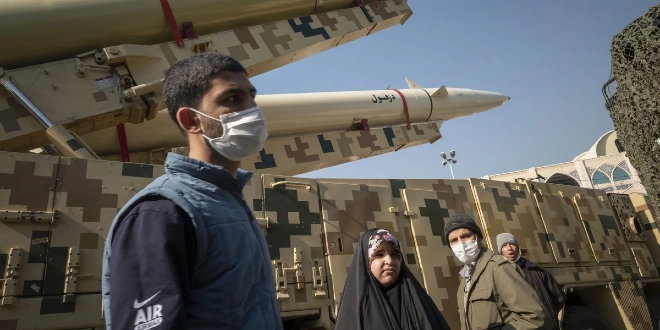The situation in the Middle East has escalated significantly, particularly after the US and UK launched strikes against Houthi rebels in Yemen. These strikes, intended to stop the Houthis’ prolonged attacks in the Red Sea, were followed by additional US strikes targeting a Houthi radar installation. These developments heighten the risk of a larger regional conflict, which neither the US nor Iran, the backer of the Houthis, seem to desire.
Since the attacks by Hamas on Israel on October 7 and the subsequent Israeli offensive in Gaza, Iran’s network of Shia militias across four Middle Eastern countries, known as the axis of resistance, has been mobilized. Hezbollah has engaged in daily confrontations with Israeli forces along the Lebanon-Israel border. The Houthi rebels have attacked commercial and Western military ships in the Red Sea, a crucial trade route. Additionally, Iranian-supported groups in Iraq and Syria have launched numerous attacks on US military positions, leading to several near-misses.
These events represent a continuous exchange of hostilities that have not yet escalated into a full-scale regional war. This situation has complicated the foreign policy challenges for US President Joe Biden, as Iran balances military tactics against the risks of a larger conflict.
The axis of resistance aims to achieve a ceasefire in Gaza, where Israel’s assault has caused significant civilian casualties and destruction, leading to allegations of genocide at the United Nations’ top court, a claim Israel vehemently denies.
The armed groups involved have paid a high price for their involvement. Hezbollah has lost nearly 200 fighters since October 8. US strikes have significantly damaged the infrastructure of Iranian-backed fighters in Iraq. In Yemen, the impact of the recent strikes on the Houthis is still being assessed, but they have potentially weakened the group’s control over the Red Sea shipping lane.
President Biden has stated that these strikes are a direct response to the Houthis’ unprecedented attacks on international maritime vessels in the Red Sea. He emphasizes that these attacks have endangered US personnel, civilian mariners, jeopardized trade, and threatened freedom of navigation.
The escalation in violence has, however, increased the popularity of Iran’s proxies in the region. These groups have gained support for standing against the US in solidarity with the Palestinians, overcoming previous allegations of corruption and internal politics.
In Yemen, the Houthi rebels, strengthened by their military capabilities, are in a better position for ongoing peace talks with Saudi Arabia. In Lebanon, the border tensions have overshadowed Hezbollah’s role in the country’s economic crisis, positioning them to negotiate for territory claimed by Lebanon but controlled by Israel. In Iraq, renewed attacks on US forces have prompted the government to push for an end to the American military presence, aligning with the interests of the Iranian regime.
While escalating tensions benefit Iran to an extent, a full-scale war with the US could be devastating for Tehran’s paramilitary allies and undermine Iran’s growing regional influence. Trita Parsi of the Quincy Institute notes that the Iranian population is against war, and a conflict might rally people around the country, not the leadership.
Parsi highlights the importance of a ceasefire in Gaza for regional de-escalation. The Biden administration is trying to balance maximizing Israel’s maneuverability without triggering a regional war. The Houthis had temporarily ceased their Red Sea attacks during a brief truce between Hamas and Israel in November.
The ongoing escalation is expected to continue, with both the US and Iran-backed groups trying to manage their confrontations. These clashes give Tehran leverage, as seen in the recent strikes in Yemen. The US faces the strategic challenge of ensuring freedom of navigation and securing international trade in the Red Sea while preventing escalation to a full-blown war.


